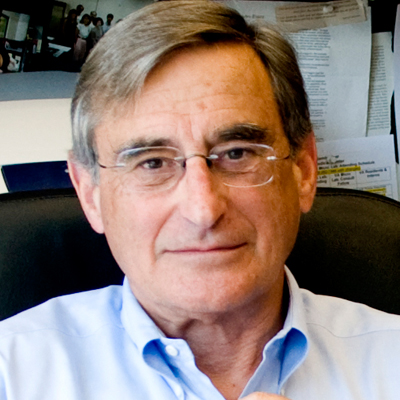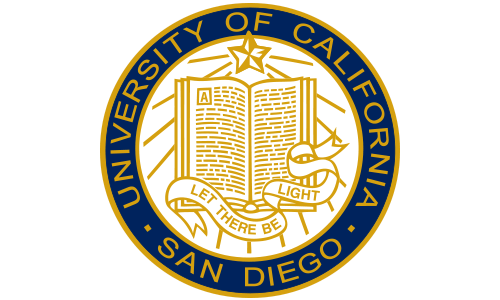How the UCSD Center for AIDS Research is fighting HIV infection
In the early 1980s, humanity faced a dark period with people dying at an alarming rate from an unknown cause. Seeing what he has called "battleground medicine" unfold before his eyes, Dr. Douglas Richman, an accomplished medical virologist and infectious diseases physician, shifted his focus to this mysterious infection and began mobilizing the clinical and basic science research community to tackle AIDS, the devastating illness caused by the Human Immunodeficiency Virus (HIV). As a pioneer in HIV research, Dr. Douglas Richman is now the Director of the UCSD Center for AIDS Research and UCSD AIDS Research Institute. His lab was the first to discover HIV drug resistance and latency, and his pioneering work in HIV immune response and viral evolution have changed the way HIV is treated on a global scale, as people all over the country and the world are testing for drug resistance as part of their clinical care. When no one knew how to combat or even identify the disease, Dr. Richman recognized the difficulties of understanding the menacing threats of HIV, and dedicated his life to fighting it. Throughout this time, Dr. Richman has trained many of the world's leading and up-and-coming HIV scientists, and he continues to actively lead his laboratory, mentor trainees and young faculty members, and teach medical students, residents and Fellows while also caring for his patients in the clinic with deep compassion. His biggest concern at the moment is training the next generation of scientists to continue this work.
The Center for AIDS Research at UC San Diego has one of the best research teams in the world, who are leading efforts for a cure, for novel "test-and-treat" clinical approaches, and for identification of early and acute HIV infection. With breadth and depth of expertise, the Center's remarkable collaborations extend across the Torrey Pines Mesa -- including the Salk Institute, The Scripps Research Institute, La Jolla Institute for Allergy and Immunology, and the Sanford Burnham Medical Research Institute, to name a few. The AIDS Research Institute as a whole encompasses a wide spectrum of expertise, focusing on bench-to-bedside translational research, with its laboratory work and clinical care widely recognized nationally and internationally. Together, the UCSD Owen Clinic and the VA Special ID clinics provide the majority of care to HIV-positive patients in San Diego and demonstrate a model for clinical care nationwide. Moreover, the HIV Neurobehavioral Research Program, a large and important component of the Institute, conducts a wide range of cognitive studies that are relevant to HIV. Highly influential and innovative, the UC San Diego Center for AIDS Research continually strives to equip scientists to perform their own research and to increase capacity, both locally and in developing countries.
Named the most frequently cited HIV author in the world in the special edition of 2008 Science, Dr. Richman is a phenomenal leader who is incredibly open and an encouraging mentor to young scientists. His office is in his laboratory, and unless he is on a conference call his office door is open to the trainees, students, and faculty members. An incredibly ethical scientist and researcher, Dr. Richman finds it very important that researchers - junior or senior - get credit for the work they have done, and guides people to correctly and thoughtfully interpret lab results with detail and thoroughness. His open-mindedness, his regard for quality process, and his creative solutions thus allow him to build deep trusting relationships with his colleagues, students, and patients, and have become the key to establishing a lab that people from all over the world seek for training, collaboration, and confirmatory testing of unusual results. Ultimately, Dr. Richman's life-long dedication to science, innovation, and teaching will leave an impact for generations to come.
Dr. Richman and his Center's current projects include:
-
Finding a Cure: There are more than 35 million people infected with HIV worldwide. More than 1.3 million people in the US are infected with HIV. HIV/AIDS has had a devastating impact on those infected and their families. Dr. Richman has been involved in the development of most of the more than 30 medications currently available to treat HIV, and has played a major role in defining the national and international agendas for HIV research and care, representing UC San Diego as an advisor to the World Health Organization, the NIH and the FDA. His work has profoundly affected treatment strategies for the PEPFAR treatment program in the developing world. The HIV research community thus has made significant progress in finding medications that allow people to live with HIV and have a normal life expectancy. However, not everyone has access to that treatment. Therefore, the team's current focus is finding a cure - to rid the body of HIV entirely. To that end, Dr. Richman led studies in 1997 documenting that the latent HIV reservoir precluded cure, thus the requirement for continuous life-long antiretroviral treatment. Since then, Dr. Richman continues tirelessly to find a cure for HIV altogether.
-
Addressing HIV-related Social and Medical Issues: The subject of HIV touches on a lot of issues, including women's rights, sex trafficking, and sex workers. Women in some countries are often blamed when their husbands bring HIV through the trucking route. There is certainly still a stigma even in the US about HIV today, and for this reason many refuse to test or to seek treatment. By raising awareness and reducing stigma, the team hopes to better engage the public in getting regular testing so that they may decrease other detrimental consequences of HIV infection.
- HIV research has many social and medical implications that include other illnesses. For example, the UCSD HIV research team collaborates with the UCSD Moores Cancer Center for understanding and treating HIV-related cancers, and also studies the connection between HIV and tuberculosis, hepatitis C, and even aging. The strides made in HIV research impact these and other illnesses, so the benefits of Dr. Richman's research extend into multiple medical areas.
-
Knowledge Testing: According to the National Institutes of Health, about 21% of those infected in the US do not know it (click here for more information). Therefore, one of the Center's goals is to have everyone tested regularly, and to reduce the stigma so that more people would be willing to receive treatment. For example, Dr. Susan Little, who is a researcher at the Center, has one of the largest cohorts of individuals identified with early and acute HIV infection, and a repository of invaluable clinical specimens that have contributed to dozens of important studies regarding early infection and transmission. Patients are most infectious in these first weeks after infection. Calling it the "test-and-treat" method, she focuses her research on how to identify those people, how to get them into treatment, and understanding why they are so infectious at this stage.
- International Training: Currently, UCSD Center for AIDS Research faculty are leading research and training programs in 19 countries, most of which are resource-limited. The goal of our international research is to provide training and research infrastructure to allow researchers and clinicians in our partner countries to lead their own research projects.
Bio
Initially a renowned medical virologist, Dr. Douglas Richman switched his focus to HIV research in the 1980s and since then his contributions have been significant and numerous. In the 1980s, Dr. Richman led the first clinical studies of HIV medications, establishing AZT as the first medication for the treatment of AIDS. Understanding that viruses could become resistant to antiviral medications, Dr. Richman then pursued, discovered, and characterized HIV drug resistance. These studies led to the concept of combination therapy to provide sustained effective treatment of HIV.
Dr. Richman's laboratory also characterized the role and importance of HIV drug resistance, now part of the development of all antiviral drugs, a critical component of the assessment of treatment roll-out globally and an essential component in the standard of practice in managing patients treated for HIV infection. In 1993, Dr. Richman was one of the co-founders of the Conference on Retroviruses and Opportunistic Infections (CROI), which is the leading scientific conference focused on understanding, treating, and preventing HIV and HIV-related infections. The annual meeting is attended by more than 4,000 of renowned researchers and clinicians in the world, and is the premiere venue for presentation of important new scientific discoveries.
Outside of his research and clinical care work, Dr. Richman and his family have created a life of art, culture, and activity. Dr. Richman co-owns a restaurant, called Table 926, with his son Matt, who is the head Chef. Dr. Richman and his wife Eva travel throughout the world to hike and explore different cultures. Dr. Richman is also an avid jogger, skier and wine collector. Dr. and Mrs. Richman are devoted grandparents to Isabella, who is a bright and beautiful elementary school student.


